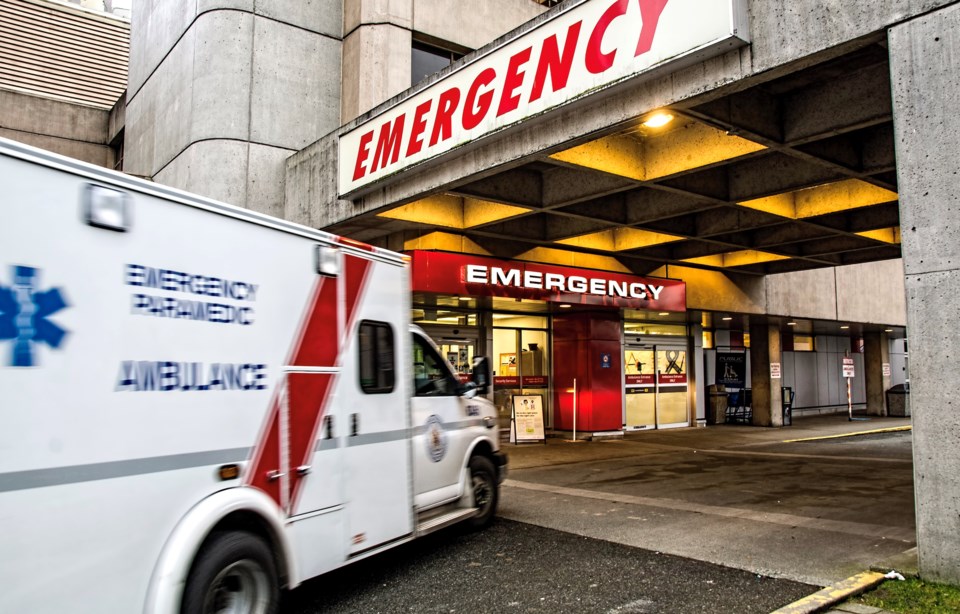COVID-19 claimed another 17 people in B.C. in the past 24 hours, raising the province's pandemic death toll to 2,747, according to new government data.
Deaths have stayed elevated through the early part of 2022, although 17 in a day is higher than average. In the first 10 days of February, there were 118 known COVID-19 deaths, for an average of 11.8 per day.
It was not clear where the people who died were located, although Provincial Health Officer Dr. Bonnie Henry said recently that about 40 per cent of deaths have tended to be at seniors' homes.
The number of those carrying COVID-19 in B.C. hospitals has fallen to 846, which is the lowest count since Jan. 17, when there were 819 people with the disease in those facilities. Of those, 136 are in intensive care units (ICUs), which is the fewest since Feb. 2.
Given Henry's comments about the number of extremely serious infections in seniors' homes, it is good news that the number of outbreaks at health-care facilities or seniors' homes has finally started to fall, and stands at 46. Nine such outbreaks have been declared over in the past day. Two new outbreaks in those homes are the Wexford Creek assisted living facility in Nanaimo, and Sidney Care Home in Sidney.
Provincial data show 4,502,854 eligible B.C. residents older than five years have had at least one dose of vaccine, while 4,234,749 are considered fully vaccinated with two doses.
There were 19,225 people given booster, or third, doses of vaccine in the past day, for a total of 2,386,210. That is the lowest number of new booster shots provided since Dec. 21, when 17,555 people received their third dose.
Exactly how many people live in B.C. is a matter of debate. The most updated BC Stats data, from mid-2021, estimated that there are 5,214,805 people in the province. Statistics Canada data released earlier this week relayed that in the 2021 census, B.C.'s population had increased 7.6 per cent between 2016 and 2021, and that the new total number of residents is 5,000,879.
If Statistics Canada's census data is used, Glacier Media's calculation is that slightly more than 90 per cent of B.C.'s total population has had at least one dose of vaccine, and nearly 84.7 per cent of the province's total population has had two doses. More than 47.7 per cent have had their booster doses.
The difference between vaccinated people getting COVID-19, and unvaccinated people getting the disease, is not nearly as stark in the current Omicron wave as it was during the Delta wave. Unvaccinated people are however still significantly more likely to contract COVID-19 than unvaccinated counterparts, and to land in hospital with the disease.
People who are not fully vaccinated with two doses represent about 15.3 per cent of B.C.'s total population.
Between Feb. 3 and Feb. 9, people not fully vaccinated accounted for 23.7 per cent of cases, according to new government data. Between Jan. 27 and Feb. 9, those individuals accounted for 31.3 per cent of hospitalizations.
The government has stopped providing data for how many people it thinks have recovered from COVID-19, and how many are actively infected, because, as Henry explained on Wednesday, that data is "no longer accurate."
Those metrics, as well as the one for new known infections, have been largely disregarded since December, when Henry told vaccinated people with mild symptoms to simply stay home and isolate, and not get tested. It is unclear why the province is continuing to report a statistic for new known infections, but it is. It said that it knows of 1,245 new infections in the past day. That pushes the total number of known infections in B.C. throughout the pandemic to 338,792.
The government also warned that its next COVID-19 data update, on February 14, may be much later than usual. •



